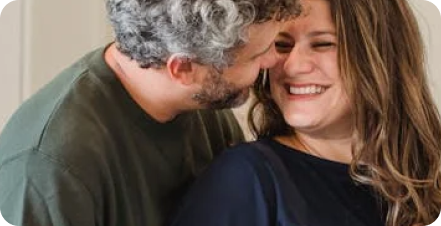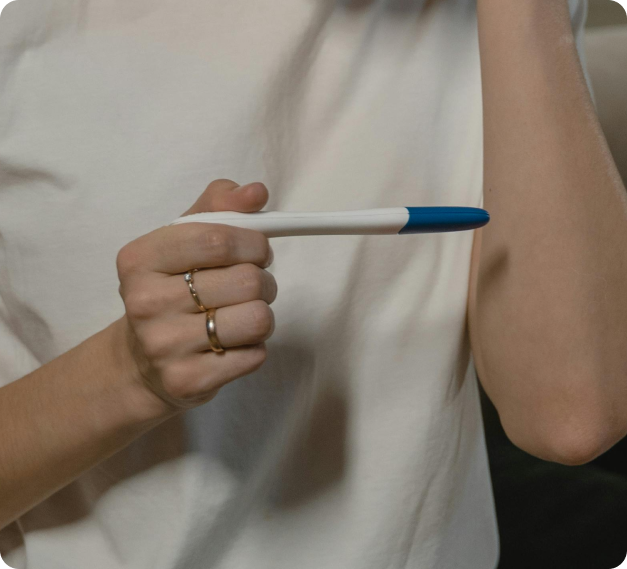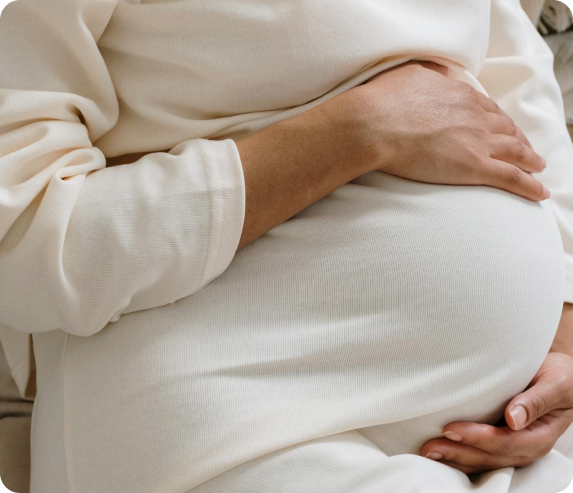

Many individuals are now choosing to start their families later in life, with only 1 in 5 pregnant women in Australia aged 35–39. This trend is often attributed to the pursuit of higher education, career advancement, and personal goals.
While societal expectations have shifted, the biological clock has not. Fertility naturally declines in the early 30s, with a more pronounced drop after age 35, as both the quantity and quality of a woman’s eggs decrease. This disconnect between modern social trends and biological timing presents unique challenges for those trying to conceive later in life, making age-related infertility an increasingly significant concern for today’s families.
Recognising this gap is crucial for taking proactive steps, such as seeking timely medical advice or considering fertility preservation options like egg freezing. These measures can help bridge the divide between personal aspirations and biological realities.

In your 20s, fertility is generally at its peak. Women typically have the best quality and quantity of eggs during this time, as well as regular menstrual cycles. With a 25–30% chance of getting pregnant every month, you're far more likely to conceive quickly and easily.

As you enter your 30s, you may start to notice some changes. While many women can still conceive successfully, the rate of fertility begins to fall, particularly after the age of 35. Advancing maternal age is associated with a natural decline in fertility due to the reduction in both the number and quality of eggs.

In your 40s, fertility drops significantly. Many women experience irregular cycles as a result of hormonal changes that can come with the onset of menopause. The chances of getting pregnant in any monthly cycle sit at 5%. The risks of pregnancy complications can also increase during this time.

Women are born with a finite number of eggs, and as they age, the total number of eggs dwindles.
At birth, there are approximately 1 million eggs within the ovaries. At puberty, this number falls to approximately 1/2 million eggs. A woman will enter menopause when there are less than 1000 eggs.
Not only does the quantity drop, but the quality of the remaining eggs can also decline.
This decline in egg quality results in:
Most of the decline in egg quality is due to an increase in the rate of spontaneous chromosome error seen as the eggs age. With IVF, it is possible to test embryos for chromosome error.
The rate of error increases as a woman ages.

Hormones play a crucial role in regulating the menstrual cycle, and as a woman approaches menopause, the balance of these hormones can shift. This means your periods may become less predictable, happening at different intervals or even skipping altogether.
When your body doesn’t ovulate regularly, it can be difficult to pinpoint the best times to try for a pregnancy. These hormonal changes can also affect the quality of your eggs.

One concern with later pregnancies is an increased risk of miscarriage, which can happen due to declining egg and sperm quality. The risk of miscarriage is 10% at age 20 and 90% among women aged 45. Women whose male partner is aged over 45 are twice as likely to miscarry as those whose partner is in his twenties.
Because of changes in eggs and sperm that occur as we age, children of older parents have a slightly higher risk of birth defects, chromosomal abnormalities and autism spectrum disorder. It’s important to remember that although the risk increases, most babies are born healthy, irrespective of their parents’ age.
The risk of pregnancy complications can also increase with age. While they are still rare complications, the risk of gestational diabetes, placenta praevia (when the placenta covers part of or the whole cervix which increases the risk that it detaches), caesarean section, and still birth increase after age 35.
Age-related health conditions, such as hypertension, diabetes, or endometriosis, also become more prevalent, potentially complicating conception and pregnancy.

One of the main benefits of egg freezing is that it allows you to take control of your reproductive timeline. This can be especially helpful if you’re focusing on career advancement, education, or personal goals right now. It gives peace of mind knowing that you have viable eggs stored for the future.
The rationale behind oocyte freezing is that 'younger' eggs are of better quality due to lower rates of chromosome error. The process involves a cycle of IVF to stimulate the ovaries to produce multiple eggs. These are then retrieved and frozen when they’re at their healthiest.
Embryo freezing offers the unique advantage of preserving fertilised embryos, providing the option for future family planning. This option is ideal for couples or individuals who have undergone IVF and wish to store high-quality embryos for later use. It can also be beneficial for those planning medical treatments, such as chemotherapy, that may impact fertility.
The process involves fertilising eggs with sperm during an IVF cycle, followed by freezing embryos at their healthiest stage. Embryos offer a higher likelihood of future pregnancy compared to unfertilised eggs. This can provide reassurance and options for those planning to conceive at a later date or expand their family in the future.

IVF is a widely used treatment for age-related infertility. It involves stimulating the ovaries to produce multiple eggs, which are retrieved, fertilised in a laboratory, and transferred to the uterus. IVF is particularly effective for women over 35 as it allows for the selection of high-quality embryos.
Medications such as Letrozole or Clomiphene Citrate may be used to stimulate ovulation in women experiencing irregular cycles due to age-related hormonal changes.
PGT is used in conjunction with IVF to screen embryos for chromosomal abnormalities. This increases the chances of a successful pregnancy and reduces the risk of miscarriage, which is more common with age-related infertility.
IUI may be considered in cases of mild infertility or when using donor sperm. However, it’s typically less effective for women over 35 compared to IVF.
For women with significantly diminished ovarian reserve or poor egg quality, using donor eggs or embryos can provide a viable path to pregnancy, often with higher success rates than using their own eggs.
Optimising health through a balanced diet, regular exercise, managing stress, and avoiding smoking or excessive alcohol can support fertility and improve the effectiveness of medical treatments.

If you’re concerned about how age may be impacting your fertility, now is the time to take proactive steps. Consulting a fertility specialist can provide clarity on your reproductive health, explore options tailored to your needs, and help you make informed decisions about your future. Whether you’re considering starting a family now or planning for the years ahead, understanding your fertility can empower you to take control of your journey.
Fertility begins to decline in the early 30s, with a more significant drop after age 35. By 40, fertility is reduced due to a natural decline in the number and quality of eggs.
As women age, eggs accumulate chromosomal abnormalities, which can lead to lower chances of fertilisation, increased miscarriage rates, and a higher risk of genetic conditions in offspring.
Women over 35 may consider fertility treatments such as ovulation induction, IVF, egg freezing, and the use of donor eggs. Genetic testing of embryos (PGT) can improve success rates.
Success rates decline with age. Women in their early 30s have about a 20–25% chance of conceiving per cycle, which drops to less than 5% per cycle by their mid-40s.
A healthy lifestyle, weight management, a balanced diet, and stress reduction can support fertility. However, medical interventions may still be necessary as age progresses.
Egg freezing involves stimulating the ovaries, retrieving eggs, and freezing them for future use. The success of egg freezing can depend on age at retrieval, with the best outcomes seen in women under 35.
Older pregnancies have higher risks of complications, including miscarriage, gestational diabetes, high blood pressure, and chromosomal abnormalities such as Down syndrome.